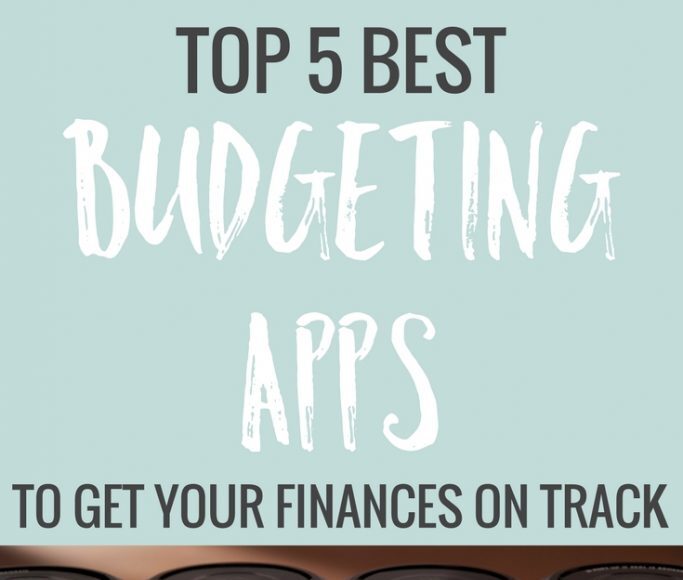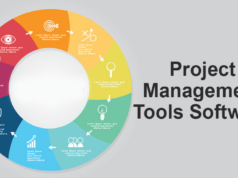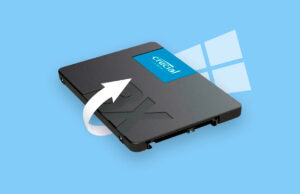Amazing 5 Budgeting Apps to Master Your Finances
Related Articles: Amazing 5 Budgeting Apps to Master Your Finances
Introduction
With great pleasure, we will explore the intriguing topic related to Amazing 5 Budgeting Apps to Master Your Finances. Let’s weave interesting information and offer fresh perspectives to the readers.
Table of Content
Amazing 5 Budgeting Apps to Master Your Finances

Managing personal finances can feel like navigating a treacherous maze. Bills pile up, unexpected expenses pop up, and saving for the future often seems like a distant dream. However, the digital age offers a powerful arsenal of tools to help conquer this financial challenge: budgeting apps. These apps, available on smartphones and computers, provide a range of features designed to simplify budgeting, track spending, and ultimately, help you achieve your financial goals. But with so many options available, choosing the right app can feel overwhelming. This comprehensive guide will explore five amazing budgeting apps, comparing their features, benefits, and drawbacks to help you find the perfect fit for your financial needs.
1. Mint: A Comprehensive Financial Dashboard
Mint, owned by Intuit (the makers of TurboTax), is a popular and widely-regarded free budgeting app. Its primary strength lies in its comprehensive approach to financial management. Mint acts as a centralized dashboard, linking to your bank accounts, credit cards, and investment accounts to provide a holistic view of your finances. This allows for automated transaction tracking, eliminating the tedious manual entry of expenses.
Key Features:
- Automated Transaction Tracking: Mint automatically categorizes transactions, saving you considerable time and effort. You can customize categories and even manually adjust categorizations if necessary.
- Budgeting Tools: Mint allows you to set budgets for various categories, providing clear visual representations of your spending against your allocated amounts. It offers insightful graphs and charts to help you understand your spending habits.
- Bill Payment Reminders: Mint sends reminders for upcoming bills, preventing late payment fees and improving your credit score.
- Financial Goal Setting: You can set financial goals, such as saving for a down payment on a house or paying off debt, and Mint will track your progress.
- Credit Score Monitoring: Mint provides free access to your credit score, allowing you to monitor your credit health. This feature can be particularly useful for those looking to improve their credit rating.
Pros:
- Free to use: Mint’s core functionality is completely free, making it accessible to everyone.
- Comprehensive features: It offers a wide range of features beyond basic budgeting.
- User-friendly interface: The app is designed with a user-friendly interface, making it easy to navigate and understand.
- Excellent visualization tools: The graphs and charts provide a clear and concise overview of your financial situation.

Cons:
- Data security concerns: As Mint requires access to your financial accounts, some users may have concerns about data security. Intuit employs robust security measures, but it’s a consideration nonetheless.
- Advertisement integration: While the core app is free, Mint integrates advertisements, which can be distracting for some users.
- Limited customization: While offering considerable features, the level of customization is somewhat limited compared to some other apps.
2. YNAB (You Need A Budget): The Zero-Based Budgeting Approach
YNAB (You Need A Budget) takes a different approach to budgeting, employing the zero-based budgeting method. This method involves allocating every dollar you earn to a specific category, ensuring that your income equals your expenses. This approach fosters mindful spending and helps prevent overspending.
Key Features:

- Zero-Based Budgeting: The core principle of YNAB is to assign every dollar a job, ensuring that all income is accounted for.
- Prioritization of Spending: YNAB encourages users to prioritize their spending, ensuring essential expenses are covered before discretionary spending.
- Goal Setting: Like Mint, YNAB allows you to set financial goals and track progress towards achieving them.
- Reporting and Analytics: YNAB provides detailed reports and analytics to help you understand your spending habits and identify areas for improvement.
- Mobile and Web Accessibility: YNAB is available on both mobile and web platforms, allowing for seamless access to your budget from anywhere.
Pros:
- Powerful budgeting methodology: The zero-based budgeting approach is highly effective for gaining control of your finances.
- Detailed reporting and analytics: YNAB provides comprehensive reports to help you understand your spending patterns.
- Excellent customer support: YNAB is known for its responsive and helpful customer support.
Cons:
- Subscription-based: Unlike Mint, YNAB is a subscription-based service, which may be a barrier for some users.
- Steeper learning curve: The zero-based budgeting method can take some time to master, particularly for those unfamiliar with the concept.
- Less comprehensive than Mint: YNAB focuses primarily on budgeting, offering fewer features related to investment tracking or credit score monitoring.
3. Personal Capital: Investment Tracking and Financial Planning
Personal Capital stands out from the other apps on this list due to its focus on investment tracking and financial planning. While it offers budgeting features, its strength lies in its ability to aggregate and analyze your investment accounts.
Key Features:
- Investment Tracking: Personal Capital seamlessly integrates with your brokerage accounts to provide a comprehensive overview of your investment portfolio.
- Retirement Planning: The app provides retirement planning tools, including projections of your retirement income and recommendations for optimizing your investments.
- Fee Analyzer: Personal Capital analyzes your investment fees, helping you identify areas where you might be paying too much.
- Financial Planning Tools: The app offers various financial planning tools, including net worth tracking and debt management strategies.
- Basic Budgeting: While not its primary focus, Personal Capital offers basic budgeting features to help you manage your expenses.
Pros:
- Excellent investment tracking: Personal Capital is unmatched in its ability to track and analyze investment portfolios.
- Powerful financial planning tools: The app provides valuable tools for long-term financial planning.
- Free to use (with limitations): The core features are free, but some advanced features require a subscription.
Cons:
- Limited budgeting features: The budgeting functionality is less comprehensive than dedicated budgeting apps.
- Focus on high-net-worth individuals: While accessible to everyone, Personal Capital’s features are particularly valuable for individuals with significant investment portfolios.
- Data security concerns: Similar to Mint, accessing investment accounts raises data security considerations.
4. EveryDollar: A Simple and Effective Budgeting App
EveryDollar, developed by Dave Ramsey, emphasizes a simple and straightforward approach to budgeting. It uses the envelope system, a cash-based budgeting method where you allocate cash to different envelopes representing various expense categories.
Key Features:
- Envelope System: EveryDollar mirrors the envelope system, helping users visualize their spending.
- Simple Interface: The app is designed with a straightforward interface, making it easy to use, even for those new to budgeting.
- Goal Setting: You can set and track progress towards financial goals.
- Debt Management Tools: EveryDollar offers tools to help manage and pay off debt.
- Community Support: The app leverages the Dave Ramsey community, providing access to resources and support.
Pros:
- Ease of use: EveryDollar is exceptionally user-friendly, making it ideal for beginners.
- Simple and effective budgeting method: The envelope system is a proven method for controlling spending.
- Strong community support: The Dave Ramsey community provides valuable support and encouragement.
Cons:
- Limited features: EveryDollar lacks the comprehensive features offered by other apps.
- Subscription-based: It requires a subscription to access the full functionality.
- Focus on debt repayment: The app’s focus on debt repayment may not be suitable for everyone.
5. PocketGuard: Easy Budgeting with AI-Powered Features
PocketGuard utilizes artificial intelligence to simplify budgeting and help users understand their spending habits. It quickly calculates your "in-pocket" money, the amount you have left to spend after essential bills are paid.
Key Features:
- AI-Powered Budgeting: PocketGuard uses AI to analyze your spending and provide personalized recommendations.
- In-Pocket Money Calculation: The app clearly shows how much money you have left to spend after essential expenses.
- Automated Transaction Categorization: Similar to other apps, PocketGuard automatically categorizes transactions.
- Goal Setting: You can set savings goals and track your progress.
- Easy-to-Use Interface: The app is known for its intuitive and user-friendly design.
Pros:
- AI-driven insights: The AI features provide valuable insights into your spending habits.
- Simple and straightforward interface: The app is easy to learn and use.
- Focus on readily available spending money: The "in-pocket" money feature is helpful for visualizing disposable income.
Cons:
- Limited features compared to others: PocketGuard lacks the comprehensive feature set of some competitors.
- Subscription required for full functionality: A subscription unlocks all the app’s features.
- Dependence on AI accuracy: The accuracy of the AI-driven insights depends on the data provided and its interpretation.
Conclusion:
The best budgeting app for you will depend on your individual needs and preferences. If you’re looking for a comprehensive, free app with a wide range of features, Mint is an excellent choice. For a more structured approach, YNAB’s zero-based budgeting method can be highly effective. If investment tracking is a priority, Personal Capital is a strong contender. For a simple and straightforward approach, EveryDollar or PocketGuard might be more suitable. Ultimately, the key is to choose an app that aligns with your financial goals and motivates you to manage your money effectively. Try out a few free options or free trials before committing to a paid subscription to find the perfect fit. Remember that the best app is the one you’ll consistently use.
Closure
Thus, we hope this article has provided valuable insights into Amazing 5 Budgeting Apps to Master Your Finances. We hope you find this article informative and beneficial. See you in our next article!
google.com








